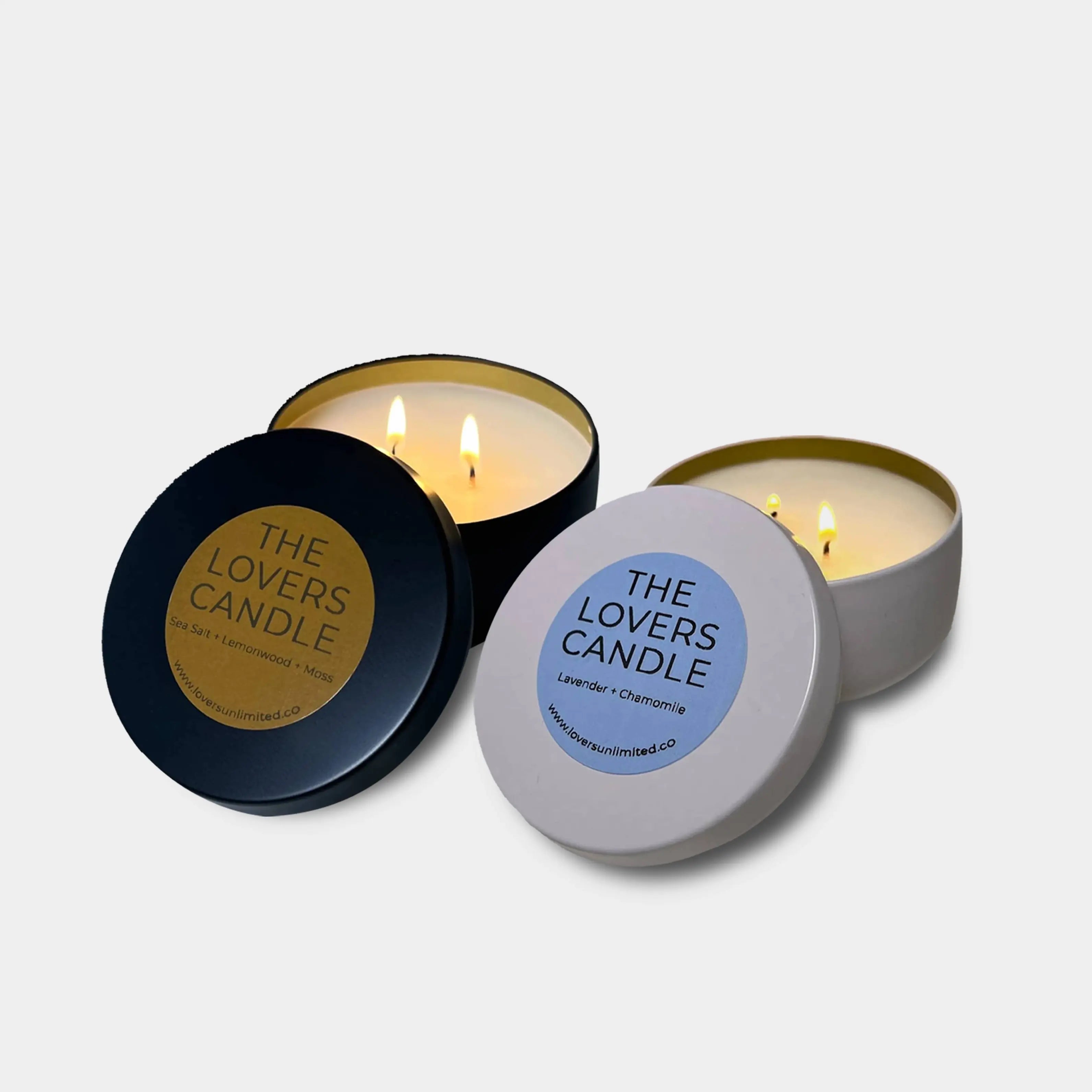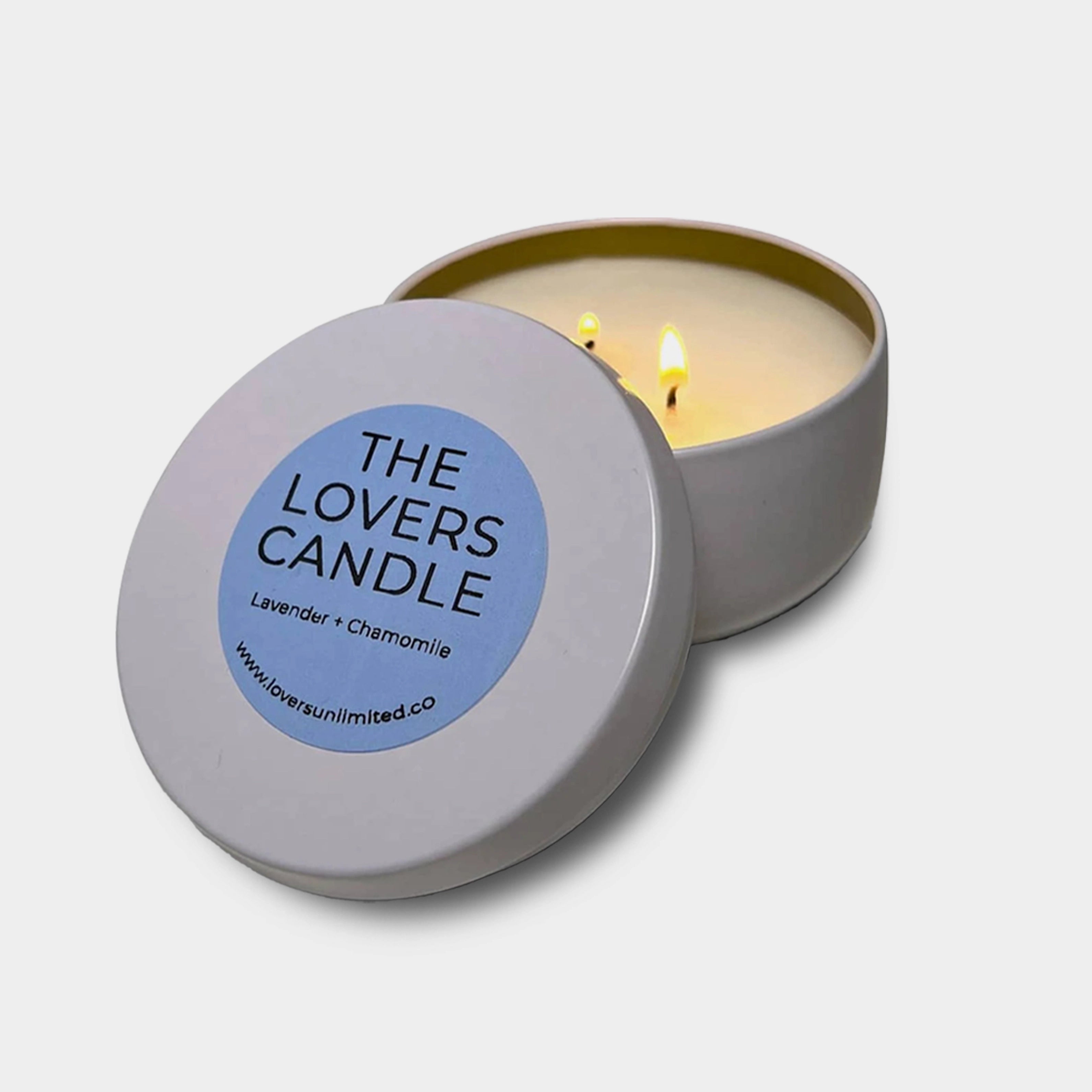
How to Test Your Compatibility as Partners Before Getting Engaged

Before getting engaged, it goes without saying, you must put your compatibility and readiness for marriage to the test. Therefore now the big question becomes, what’s the foolproof way to know whether my partner and I are compatible in the long term? If there’s one such litmus test, kindly DM us @Cera_and_Matthew. Definitely that would save us lots of stress as we’re contemplating our own engagement.
At the moment, my girlfriend and I are guided by the two cents we’ve picked up in our experiences while dealing with all sorts of partners. Whether it’s a business relationship, or with family, long term commitments are tough to sustain. Which makes it critical to establish the terms of engagement as early as possible in the relationship. These are difficult conversations to have. But then marriage is not about whether you feel comfortable with each other, but rather, are the two of you actually compatible?
Over time, what makes or breaks a relationship are our individual habits and visions. If these things cannot marry, neither can you. And for this reason, Cera and I put a lot of effort into making these clear right from the time we started dating.
The five main questions in our compatibility test are:
-
- Can we talk honestly and freely about money?
- Do we know each other’s desires, kinks and hang up surrounding sex?
- How well do we travel together? (Chances are that if we can’t literally go places without wanting to kill each other, we’ll drift apart in time. We’re going nowhere.)
- Have you met my family?
- What type of wedding will we have and where? What’s the time frame between getting engaged and the wedding?
For an interracial couple like ourselves, there’s no question we can take for granted. Our differences are more pronounced. For instance, how do we settle on the type of wedding without one partner feeling their culture has been overlooked?
Well, kindly hear us out:

Episode Introduction: Should We Get Engaged?
Matthew Temple: Should anyone get engaged in this day and age?.. I guess you need to -if you’re going to get married. So yeah that would be a different question.
Cera: But were we to get engaged, there have been a few things that we thought were good markers for us-
Matthew Temple: Good markers in order to get engaged. Like when is the right time?
Cera: Yeah. And because we didn’t want to just get engaged blindly, we’ve been talking about being engaged since we’ve been together for..?
Matthew Temple: We’re pushing four years. Not quite, but we’re getting there.
And just kind of as a little disclaimer, I think that the idea of a conversation around engagement is moderately postmodern, right? Because at some point in time, this wouldn’t have been a conversation.
Now, of course, if you go back not too far back, and depending on where you are in the world, you don’t live together if you’re not married.
So, by that extension, now that we live together before we’re married, it’s not that big of a stretch to say we talk about our engagement. It’s not like, ‘Oh, I’ve got this secret. And I’m going to surprise her.’
Should a Wedding Proposal Be a Surprise?
Cera: No, I wouldn’t mind to be surprised on some of the engagement aspects like -the ceremonial part of being asked. But I don’t want anyone to ask me to be engaged to them or to marry them before we’ve really discussed, like, what our future would look like?
Matthew Temple: Do you feel like it’s an issue of agency in that? Like, do you think that the asker somehow has this sort of undue power? Is undue power given to the person who decides when it’s time to get engaged?
Cera: Yeah. And this may be surprising to people who are listening but, actually I wouldn’t like to be surprised. I want to choose when I want to be engaged, not the actual date, but…
Matthew Temple: You don’t want to be like, ‘Ugh, this isn’t something we’ve ever talked about.’ Like I said, in relation to this agency thing, yeah, if we both want to have an equal say in our relationship, it means that we actually also have an equal say in our marriage or engagement.
And obviously, equality doesn’t mean that we don’t take on different roles in different ways. Or take on bigger things in other places. But that ‘s not like, as the man, going to your uncle or your mother’s saying, ‘May I have your daughter’s hand?’ Although some people say, ‘That’s a nice thing to do. And maybe you should…’
Cera: And maybe you should… Just kidding. But I think we’ll get to that part. Let’s talk about the things that were important to us over the last four years, and that we’ve talked about in the sense that these would still be important if we were to get engaged and get married… I think one of the things was sex, our sex life.
The Importance of (Talking About) Sex Before Marriage
By the time you get to be married, it’s so important for couples to even just ask, ‘How many times do we have sex a week? A day?’
 Matthew Temple:
Matthew Temple:Cera: Well, not everyone. Some people are religious, and they have to wait for religious reasons. But we chose not to wait. So for me, it was important that I understood your body, and that you understood mine.
Matthew Temple: And there’s also an ease and flow in the relationship that comes with being able to talk about that. Especially in the world of consent where we’re shining a light on finding consensus. One of the things that I think is so important is actually being able to bring up the conversation around sex. So it’s not weird even when we’re not having it -like not having it at the very moment.
But even when in the moment we should be like, ‘What works for you? Do you like this? Do you not like that? You know, this is what I like…’
It’s great if you can have this free, open flow of communication, because sex sometimes can be hard to talk about
Cera: True, it can be hard to talk about sex, and I think that’s because there’s usually trauma around sex. So it’s important for both couples to open up about their traumas, and challenges that they have around sex.
Matthew Temple: Or hang ups. I mean, trauma is a big word. Which a lot of people do have, of course. But even on a smaller scale, we have little hang ups, or the social expectations that become like a voice in your head, right?
Cera: Yeah. And I think for us, that’s been important for the past four years now. We’ve been having sex, and now we know each other’s bodies so well at this point… I think we’re ready for marriage. We’re ready for our sex life to end! (Laughing)
But I do have to say that sex does get better with time.
Matthew Temple: I agree. And I think a lot of that actually has to do with the communication. One of the things I also wanted to say is that, as much as sex can be a hard thing to talk about… (Like, in those moments, do I want to actually have an intellectual conversation about what I like? Or if something’s a little bit weird sometimes?)
Well, whatever that might be, the truth is that any of the challenges with conversation around sex, they will pale in comparison to challenges that couples will have once they’re married, they’re deep in, and they’re committed.
And so the ability to have an easy flow with that is going to be really useful down the road. When good communication skills become paramount to successfully continuing a marriage.
What’s the Most Difficult Topic of Discussion in a Relationship? Money.
Cera: Yeah. And so we’re gonna move on to the second thing that we thought was important to talk about and to actually do it before we got engaged. And that is talking about money.
Matthew Temple: It has been difficult. And in fact, I’ll publicly admit that you and I recorded a podcast about money once. And it was so uncomfortable, we threw the podcast away.
Cera: Well, I was like, I cannot do this. I’m not ready to talk to you about money on the podcast. Because it was so uncomfortable for both of us. And I think part of that was like discussing things like debt, ‘What do I owe? What do you owe?..’
Matthew Temple: Or, ‘How do we really put our money together in a way that feels really respectful of both of us and the efforts that each of us put in? And in different ways?’ You know, I’m a little bit older than you, and you also just graduated. While I graduate college later than many, I was in my mid 20s when I did. You were what? 31?
Cera: I was 31 when I graduated college
Matthew Temple: Yeah, so we’re both a little bit older when we graduated college. But even then, there were these different things. You’re just starting a business. And anyone who’s ever started a business before knows that getting it going is really tough. You’ve got to go through a lot of bootstrapping. You have to make these hard choices.
While there are those choices that I feel really good about supporting, and you feel good too, there are things that we don’t feel good about.
Yet if it’s something that you feel is necessary, I really need to spend money on this thing for my business. But I also need to go get my nails done, right? And so like, even with little things like that, we both have to feel really comfortable. And that can be so hard.
Cera: It can be hard. And also, because of the way we grew up, we have different perspectives on money perspectives. As in, we have different views on how to make, keep or spend money.
So for that reason I think money is so important for couples to talk about before you get married. And since engagement is the doorway to marriage, and it costs a lot of money to go through it…
Matthew Temple: Yeah, getting married costs money.
Cera: It’s really important to have the money conversation.
Matthew Temple: One of the things that’s been nice for us having lived together for a while was we had separate money, but we now also have combined money.
Cera: And that’s been such a relief.
Do Not Get Engaged, If You Cannot Talk About MONEY
Matthew Temple: It’s been really good. Of course, there’s been some bit of adjusting, but in general, it’s felt really good. Because it means… Wait, when I say we share money, it doesn’t mean we share all of our money.
Cera: No, we both have separate bank accounts. But then we put equal amounts into a joint account that we spend for things that we need within our house, or businesses that we do jointly.
Matthew Temple: Yeah. And I think it’s the right time to start since right now, we’re both in a similar situation. Whereas I had been working much in the film industry before we moved to Kenya, now we’re back here I’ve done some shifting. I haven’t done any filming in a year and a half. So it’s kind of we’re both in this similar situation. So in this case, it made sense for us to put in equal amounts.
If we go back to the beginning of our relationship, there were times where it made sense for me to put in more. And that wasn’t anything that I had to feel bad about, or that you should have felt bad about. It was just that I had more, I had other streams of income.
And so regarding equality in relationships, I think sometimes it can be almost short sighted, where all you think is, is it equal right now?
Cera: Yeah, I get what you mean. In the beginning of our relationship, you were making more money, you had more streams. And so it just made sense that you paid for more things. But that too needed to be a conversation.
Matthew Temple: Sure, it needed to be a conversation that’s conscious. That way, you didn’t feel like you couldn’t bring something up. Or that you had less of a voice in our financial conversation than me. And this is before we’re married, by the way.
Cera: Yeah. And I just think like, do not get engaged, if you cannot talk about money. For us, it’s been almost four years, sure it’s getting better. But it’s still one of the most uncomfortable conversations for me to talk about. Yet it’s up there in the leading causes of divorce, right?
Matthew Temple: And actually, I did a workshop years ago with a former head of RSF -social finance. And he was citing a study that talked about what conversation makes people the most uncomfortable. Turns out people felt more comfortable answering, ‘How much sex have you had in the last week?’
Like you yourself have just asked. Right? ‘How much sex in the last week?’ ‘Four or five times for us.” Right? That’s easy. So I can even say that here. But if you ask me how much money I have? Like, what’s my total net worth?
Cera: I would totally be like, ‘No, I’m not gonna – I don’t want to answer that.’
Matthew Temple: Yeah. ‘How much money did you make last week?’ That’s much more uncomfortable.
Cera: It’s a really personal question, you know. Like, when I answer that, are they gonna judge me? Even if we’re friends, ‘Are you gonna judge me for how much I make? Are you gonna judge me by how I spend my money?
Matthew Temple: True, and there’s a little envy that comes if you have more. Alternatively, if you have less, it’s like, ‘Oh, so you’re not doing quite as well as I thought you were?’ or whatever.
So we all pass these weird judgments. And all that stuff can come in a relationship. So it’s also why I said free conversation is just so vital.
Cera: Yeah people, talk about money. Ourselves we’ll keep talking about money so that we can make it not as awkward and uncomfortable.
Matthew Temple: I’m actually just gonna say one last thing, there are certain things around money that we didn’t disclose right away in our relationship.
Not all ‘non-disclosures’ were deliberate. There were a few things that were hard for us to come out with. So we kept like, ‘Hey, there’s this thing that I haven’t told you yet, that I need to tell you now.’
But each of us had things where we would think to ourselves like, ‘I can avoid talking about it because it’s never come up. And I’m going to make sure it doesn’t come up.’
Cera: Or sometimes you think like, ‘I don’t want to share this because it’s none of their business-
Matthew Temple: ‘This is my thing.’
Cera: ‘This is my thing. This is my choice.’
But the thing is, once you get engaged, you get married, then it’s actually not singularly your thing. It’s a thing for the both of you.
So for sure people, talk, talk, talk about money
How Do You Travel with your Partner?
One of the things that we’ve noted is that traveling can really bring out different qualities in different people. And so how well you travel together, I think is important.
There are people, both friends and partners in the past that I’ve traveled with that were great. And then there are those that were not great.
Cera: Yeah. And just so everyone knows, we’re not talking here about traveling abroad together.
Matthew Temple: We did that on another podcast.
Cera: Yeah, here we’re talking about travel in general. It’s an important conversation to have because when you travel, things sure happen unexpectedly. All sorts of things just show up.
Matthew Temple: Well, there’s so much of that. You get to the hotel and there’s a problem. Or you go camping and somebody forgot the matches. Or you go to Disney World for a weekend, you’re bound to overspend…
There’s all these unknowns and uncomfortable things that go along with traveling?
Cera: Yeah, one of the partners is going to get tired. And you get to see how they react when they are tired, or hungry, you know?
Matthew Temple: Yeah you get a test of how much can you hold for the other person?
Cera: And how much can they hold for you? Can you actually put up with each other for that long?
Travelling With Your Partner Makes You Ask Yourself, ‘Do I like this person 24/7?’
Matthew Temple: One of the side effects of Covid has been high divorce rates. I think that’s because people are now stuck together just like traveling sticks you together. You don’t get as much space, you don’t get to go to your job for eight hours -plus an hour of commuting or whatever. You actually have all that time together.
And so it’s an important thing to know, ‘Do I like this person 24/7? Or do I just really like them from like, 6:30pm until I fall asleep -and then for an hour between getting a shower, throwing some coffee and going to work? And then for the weekend they’re good enough. Oh but then God give me Monday!’
Cera: Yeah, it’s like that for us recently, we just traveled almost 40 hours together.
Matthew Temple: You’re talking about the time we left Kenya coming here?
Cera: Yeah, coming here.
Matthew Temple: Sure we were tired. Five airports. Moving all of our stuff. Having to get a special police permission to cross county lines?
Cera: Yeah. And that just shows in our relationship. Honestly, every time we’ve had to pack up everything and travel? There has been a lot of tension or stress around. It’s always a moment where we always fight.
Matthew Temple: Can you believe it? That this couple ever fights?
Cera: Yeah, we do fight. Every couple does. But it’s important, how we also choose to get over these. We consciously know how we fight and we know how to resolve our own fighting, you know? And the uncertainties that came with travel. So yeah, I would say, every couple should travel somewhere or go camping. Yeah, go camping… I don’t do that.
Matthew Temple: No, that’s for me.
Cera: So what else should couples do? Or make sure that they do before they get engaged?
Matthew Temple: Meeting the family?
Should You Meet Your Partner’s Family Before Getting Engaged?
Cera: Yup. It’s so important, especially for us as interracial couples.
Matthew Temple: Yeah. I mean, when you get engaged, you are also engaging your families with each other and in each other’s families. I don’t think that it’s necessary that it all goes as smooth as your own relationship. But the people, the family of your future spouse, they have a huge impact on who they became. But also even in their future. If there’s an emergency in my family, I need to upend our lives and go deal with that. Right? Whatever that might be. So there’s definitely a connection. And, then we’re just going to spend a lifetime together.
Cera: So yeah, for you going to Kenya with me was so important. Also for our relationship. We traveled and you got to spend time with my family, you got to see where it came from, you got to see how I was raised. I used to feel for some part of our relationship like you really didn’t know me until we moved to Kenya. And so when we moved there, you actually got to see how my childhood and my family has shaped who I’ve become, and that is so important.
And now, we are in Petaluma, Northern California, we are living close to your family. And it’s also so important. I’ve been hanging out with your dad more, and I see how you’re so much like your dad in so many ways and like, I’m happy to be around your family because I get to see who you are, you know, through him and through your brothers and yeah, so…
Well, the other thing that you should talk about before you get engaged is the type of wedding. And when the wedding is gonna be before you get engaged
How Much Time Do You Need Between Getting Engaged and Getting Married?
Matthew Temple: When? You need to pick a date?
Cera: You don’t need to pick a date. But I think it’s crucial to be able to answer this question, ‘Are we gonna get married 10 years from now -or we want to get married in a year after we get engaged?’
Matthew Temple: I guess that’s why there’s no ring because we haven’t discussed this exactly.
(laughing)
In some ways though we’ve discussed it actually… I think we’re ready for engagement. So I think I might disagree with you on this
Cera: Okay.
Interracial Couple Problems: What Type of Wedding Do We Do?
On that, we’re both a little confused. Because you’re Kenyan. I am American. So there’s like traditional Kenyan weddings. And then also Kenya is obviously, both Christian and a Muslim country, you’re part of Kenya is Christian. But then there’s Christian weddings, there’s civil weddings, there’s all sorts of different things. And, you know, not only do we have the smorgasbord of types of weddings to choose from in America, but now also Kenya. And we’re coming together.
And then, Kenya has a tradition of dowry. So do we do that? and in what way would we do that?
I think that’s where we’re both a little confused.
Cera: I have to agree with you. I am confused. I don’t know necessarily what kind of wedding I want. But then I think there’s a few things that guide the kind of wedding that I want. For instance, I know for sure I don’t want a huge wedding.
Matthew Temple: Well, we definitely don’t want to do it. Some people do. Basically you mortgage your future in order to have a 50,000 or 100,000 or a quarter million dollar wedding.
Cera: No, I don’t need 500 people, or 300 people at my wedding… And there’s also something else: I don’t want a destination wedding. Because… not all my friends are rich, you know? Yet I would want all my friends to attend without feeling like they’re breaking the bank, you know?
Matthew Temple: And then we have these other things, too, like, if we get married here, that means that your Kenyan family and friends don’t get to come? If we do it there, then it’s like, who’s gonna come?
Cera: Who has the privilege to travel? Who has the privilege to buy the ticket? Who can afford it? Who can’t afford it? I think those are important questions way before planning a wedding.
Matthew Temple: And it takes time. Kenya is on the other side of the planet. It’s not somewhere you just go to. Oh, it’s not like going to New York. It’s not like going to London. If you get to London, you’re not even halfway there. You have to keep going again like that amount all over again.

Cera: Yeah, so I do think we do know these things. I’m not saying like, we know the day, but we kind of have talked about it enough to know some of these things.
For instance, we both knew that we didn’t want an expensive wedding.
We both know that we don’t want a destination wedding.
And we know that we want our friends to attend and make it.
And so when I was talking about the date I meant, I don’t think I need to know the exact date -and we can keep talking about this. But once we engage, I wouldn’t want to be like dragging it for another four years.
Matthew Temple: Oh, all right. This might be the last podcast.
Cera: And I think here I’ll go for a friend’s or family’s backyard wedding. And we can then go to my family in Kenya and do the same thing.
How Do Engagements Work Today?
Matthew Temple: Okay, there we go. We might have just decided that. So that’s some good news for our future. Before we conclude, I just wanted to kind of just shine a light a little bit on how engagement works today. Where’s the power balance (or imbalance?) when there’s an expectation that I as the man propose? Or that it’s like the secretive thing? ‘When is he going to propose? Is he really going to do it?’
Like, what kind of communication skills would we have been lacking? If this was a thing where you’re talking to your girlfriend about ‘when is he going to propose?’ And not talking to me. And not having this free flowing conversation? Or where I’m just thinking this whole thing in my head, or completely not thinking about it?
Like dude, there’s a finite amount of time. Life might be long, but at a certain point, it’s a finite amount of time. What do you want to do with that time? Who do you want to spend that time with?
This conversation doesn’t need to come up early like it did for us. It could take five, six or seven years before that comes in. But if it becomes this thing that we don’t talk about, I just don’t think that bodes particularly well.
Cera: No, it doesn’t. And here I will speak as a woman, we’ve been told even in the modern world not to talk ourselves about engagement and wedding and dating. It’s like you’re always waiting on men to decide when we can talk about these.
So before I started dating you I was dating as if I didn’t know what I wanted. Until I was like, I actually have a voice in this. And I’m done not speaking what I want. And I was just like, I’m gonna date and be very clear about what I want now on.
Matthew Temple: And you’re like, ‘I want him!’ And I was like, that’s cool because I want her.
Cera: Yeah, and these other things that I’m looking for in a committed relationship. And it makes it so much easier. Because you share an understanding with your partner. Sure it can be hard, but once you have clarity about what you want, it becomes easier to have that conversation.
And to me, entering my 30s, I was more clear, like, okay, I want a committed relationship, I want to have a family, I want a commitment, and I wasn’t gonna be quiet about what I wanted.
Matthew Temple: Yeah. So, there it is. I think that is kind of the key in this: speak out what is important. And in closing, I want to just say that, sure, my saying what is important to me is super key. But equally important also is to be open to what the other one wants. That way, there’s a real flow in this.
And so I think when we kind of go back through all these things, whether it’s sex or money, or family, or wedding or traveling; the key there is communicating honestly, regarding where you are, while also really listening to the other.
Anyway I’m really curious if anybody here, if you’re getting engaged, if you’re thinking about it, like how is this process for you? Share that with us in the comments section below, or reach out via info.loversunlimited@gmail.com. We would absolutely love to hear from you.
And if you’ve got engagement pictures, you can share those too. Seriously, that would be fun.






